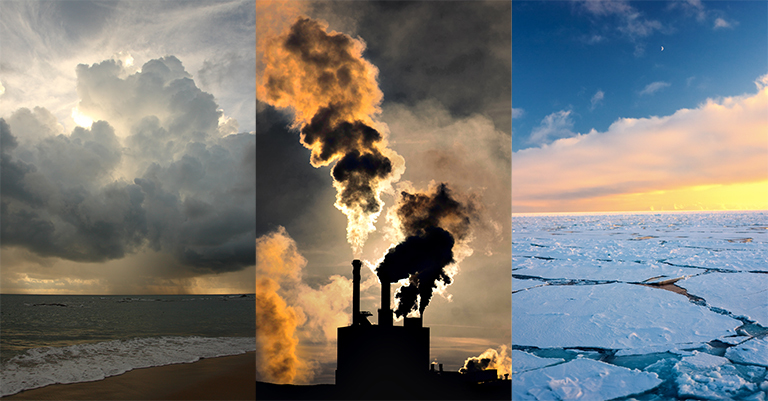Ask 5: UWL students’ share concern for climate change
October 13, 2018
Climate change has become a very popular and controversial topic over the years; many people do not believe that climate change is a very big issue, but much of the youth at University of Wisconsin – La Crosse are worried for our planet’s safety.
“I’m pretty upset no one is doing anything about it because this is a big issue. This is our planet and we’re killing it,” said UWL freshman, Marilyn Budde.
The four most recent years, 2014, 2015, 2016 and 2017, were the four warmest years globally since 1880, according to NASA. The planet is expected to warm by 1.5 degrees Celsius in as little as 12 years from now, according to a United Nations report.
“It’s a serious problem. If we don’t do anything about it there will be irreversible damage that we can’t come back from. There are so many animals that are going extinct due to poor environments,” said UWL freshman, Gwen Bellmore. Animals that subside in the Arctic are especially at risk. An additional half-degree of warming could mean greater habitat losses for polar bears, whales, seals, and sea birds, according to The New York Times.
“Climate change is a problem, in Antarctica the ice caps are melting which can cause major flooding,” said UWL freshman, Sydney Dorn. Due to the ice caps melting, sea levels are beginning to rise. According to The New York Times, 31 to 69 million people around the world will be affected by flooding from rising sea levels.
“We can do more to prevent it, it’s a little late to stop it, but I think we can slow down the process. The meat industry is a big contributor,” said UWL freshman, Jocelyn Buchholtz. The meat sector is one of the leading polluters in the food industry. Environmental impacts of the meat chain influence global warming, and it is polluting the environment with various types of waste and waste water discharge, according to a 2015 study by the University of Belgrade.
“Humans have a huge impact more than ever. I think we emit a lot more pollution with factories and driving,” said UWL freshman, Karley Boston. Gasoline-burning vehicles are one of the main contributors to greenhouse emissions, which is one of the main reasons for climate change. These gasoline-burning vehicles would need to disappear and be replaced with zero-carbon alternatives.
“I don’t think we are doing enough globally to fix the damage. I think that the damage is irreversible,” said Boston. Even if we stopped emitting greenhouse gases today, global warming would continue to happen for at least several more decades, according to NASA. Carbon dioxide lingers in the atmosphere for hundreds of years, so there is a time lag between what we do and when we feel it.
Even though some actions are being taken to try to help our planet, like cutting down on plastic straws, many students are worried about the future of our planet and feel that the damage that has already been done cannot be fixed.







